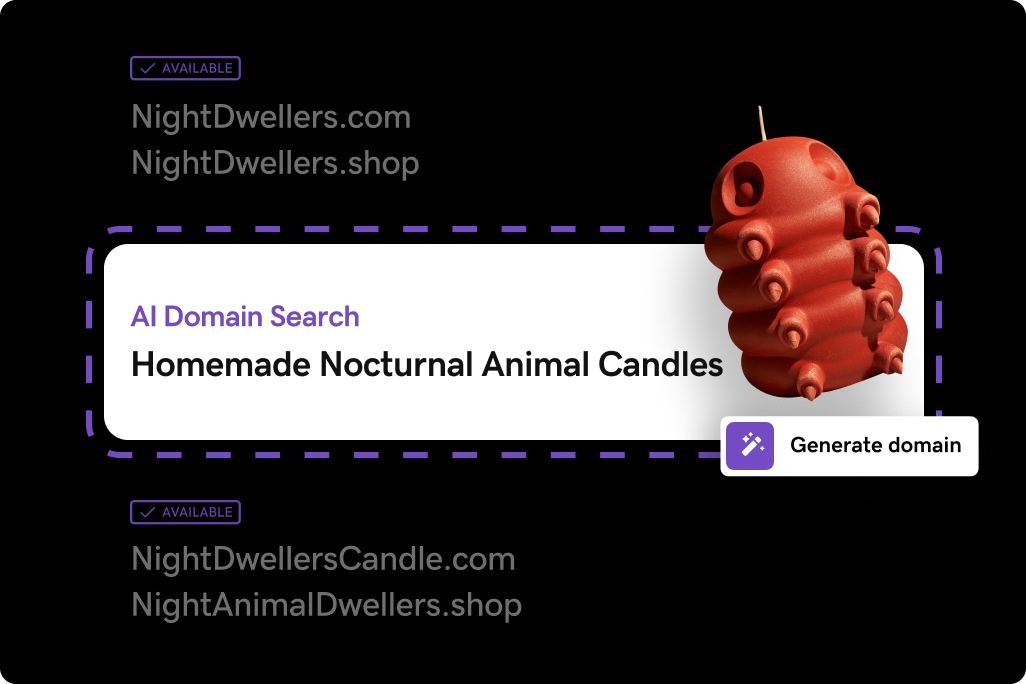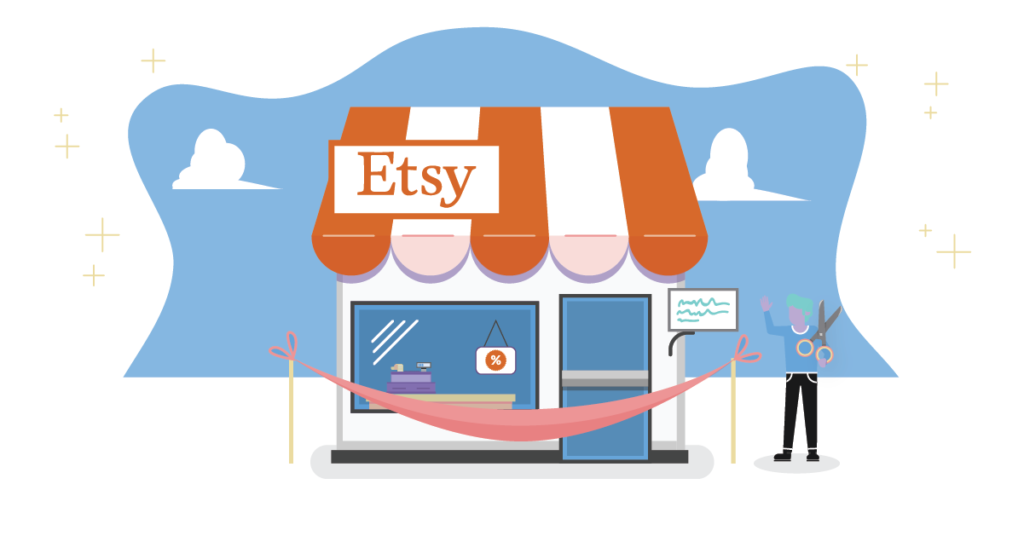Have you ever wondered if that quirky domain name you thought of in the shower could actually be worth thousands of dollars? Welcome to the world of domain flipping, a digital real estate hustle where savvy investors buy and sell website addresses for profit.
From short, memorable names to keyword-rich phrases, premium domains are hot commodities that can yield big returns with the right strategy. Some of the most expensive domains ever sold — like Voice.com for $30 million — prove just how lucrative this market can be.
Domain investing remains incredibly relevant today thanks to the continued rise of ecommerce, personal branding, and digital entrepreneurship. As more businesses shift online, the demand for catchy, brandable domain names continues to grow.
In fact, researchers expect the number of registered domain names to reach 464.8 million by 2030 with a CAGR of 3.3%. With the right strategy and timing, domain flipping can be a high-reward endeavor.
Before you start investing in domains, check out these seven tried-and-true tips for buying and selling domain names for a profit.
7 tips for buying and selling domain names for profit
So, how exactly do you start investing in and selling domain names, and how do you get real value for them? Let’s dig into each of the tips below to help you become a pro.
- Narrow your focus.
- Find names that offer real value.
- Check domain availability.
- Evaluate the price.
- Get your domains front and center.
- Set realistic goals based on market research.
- Use a domain broker service.
1. Narrow your focus

There are millions of domains already registered and just as many still up for grabs, especially when you consider the hundreds of new domain name extensions like .app, .club, .tech, and .ai.
If you plan on buying a domain to resell it, start by narrowing your focus.
Stick to what you know. Got experience with pets? Try hunting for domains with .dog or .pet. In real estate or car sales? Domains ending in .realestate or .car might be your sweet spot. If you're in education or healthcare, extensions like .education or .doctor could open up solid resale opportunities.
Feeling inspired? See if your idea is available here:
It is much easier to sell a domain you know would be valuable to someone in a particular industry.
Start your search with keywords tied to industries you're already familiar with. It’s much easier to spot the value in a domain—and pitch it to the right buyer—when you understand the space. Not sure how strong your keywords are? Use tools like Google Trends or Google Keyword Planner to get a better read on demand.
2. Find names that offer real value
Domain flipping isn’t about grabbing whatever’s valuable; it requires finding names that can truly serve a purpose for someone else. Think about the kind of buyer who would benefit from the domain. If you were in their shoes, would owning that name actually help your business? Your answers will help guide your search for more strategic, in-demand domains.
Let’s walk through a quick scenario. Say you know the real estate market in Tempe, Arizona, and you spot tempeapartments.com listed for $200. Before you jump in, consider:
- How much profit does one month of rent bring in for a landlord or property manager?
- What would a full year of rental income look like for them?
- If you were managing properties in that area, would you buy this domain?
- What types of domains are property managers and landlords using right now?
- How much are they likely spending on ads and lead generation?
- Would a domain like this help them look more credible or established?
If you know the answers and the niche, you’re already ahead. You’ll have a better sense of which domains are worth the investment and who might be ready to buy when you're ready to sell.
3. Check domain availability
Once you’ve identified the types of domain names you want to pursue, the next step is to see what’s available. Start by checking if your desired domains are open for new registration. If they haven’t already been claimed, you can buy and register the domains immediately.
For domains that are already taken—which will often be the case—turn to the aftermarket. GoDaddy Auctions is a reliable place to find premium domains being sold by current owners or re-listed after expiration. Use the advanced search tools to filter by price, domain extension (.com, .net, .ai, .club, .org, etc.), keywords, and more. These filters make it easier to navigate millions of listings and pinpoint names that align with your investment goals.
If a domain isn’t listed on the auction platform, a quick WHOIS lookup can provide ownership details so you can explore potential purchase opportunities directly.
Related: Steps for buying a domain name
4. Evaluate the price
You’ve found the perfect domain to flip, but how do you know you’re paying a fair price? GoDaddy’s free domain name value and appraisal tool gives you an estimate based on comparable domain sales, keyword demand, and other market factors. This is a great way to set baseline expectations.
You can also browse current listings on platforms like GoDaddy Auctions and Afternic to compare similar domain prices. For additional insight, DN Journal publishes a weekly sales report featuring top public domain transactions across the industry. These resources can guide your pricing strategy.
If you’re a buyer and find a domain you truly want, don’t wait. In some cases, it’s worth making an offer directly to avoid a bidding war and secure the name within your budget.
If you’re a domain seller, consider setting a minimum price but allow room for offers. Look for companies using similar domains that may want to acquire your domain because it reflects their branding.
Patience and persistence are key when buying and selling domain names.
5. Get your domains front and center
When you're ready to sell, visibility is key. The more exposure your domain gets, the higher your chances of connecting with the right buyer. Here are a few strategies to help you get your domains in front of the right audience:
Choose a trusted and well-known platform
Working with a reputable marketplace ensures a smooth, secure transaction for both you and the buyer.
Look for platforms with strong ratings from organizations like the Better Business Bureau or those backed by trusted institutions.
Buyers are far more likely to complete a purchase when they trust the brand behind the sale. A reliable platform builds confidence, and that confidence can close deals.
Opt for platforms with strong distribution networks
Reaching serious buyers requires serious reach. Listing your domain through a wide-reaching network like Afternic can connect you with millions of prospective buyers each month. Afternic is part of the GoDaddy family and automatically syndicates your domain to GoDaddy and over 100 top partners, including Network Solutions and Register.com. That kind of visibility increases the chances of a successful sale.
Leverage your network by reaching out to individuals or businesses
If you know people or businesses that could benefit from your domain, don’t hesitate to reach out directly. When you're familiar with the industry, you can better articulate why the domain adds value.
Keep your outreach brief, targeted, and personal. Do not cold spam.
Your goal is to open meaningful conversations with those who would truly benefit from owning the domain, not spend time talking to dead-end leads.
Create a "For Sale" landing page on your domain to attract potential buyers directly
A “For Sale” landing page clearly states that your domain is available for purchase. This is especially useful if the domain receives direct traffic. Learn how to add a for-sale landing page for your domain to capture buyer interest immediately.
6. Set realistic goals based on market research
To be successful in domain investing and flipping, you must set clear, achievable goals. Begin by defining what success looks like for you. Are you aiming for a handful of high-value sales or a larger volume of smaller transactions? Either way, take time to research current trends, buyer behavior, and what types of domains are performing well in today’s market. Focus on quality over quantity and build a portfolio that reflects demand, not just availability.
Use tools and data to guide your decisions. Competitor analysis, search trends, and other insights can help you refine your sales and pricing strategies. For more guidance on identifying demand within your niche, check out this guide to market research.
7. Use a domain broker service
If you're dealing with high-value domains, working with a professional domain broker can make a big difference. Brokers are especially useful when you want to approach a domain owner discreetly or need help navigating a complex negotiation. They bring experience, market insight, and proven strategies to the table that can help you secure deals that might otherwise be out of reach.
A good broker offers two key advantages: anonymity and negotiation expertise. They act as an intermediary, keeping your identity private while advocating for your best interests during the transaction. This is especially valuable when a buyer wants to acquire a domain without tipping off the seller to their business plans.
If you're considering this route, make sure to work with a reputable provider. GoDaddy offers a domain broker service that pairs you with a dedicated agent to help you sell or secure the domain you want at a price that works for you.
Advanced strategies for buying and selling domains
After you’ve gotten the hang of domain flipping, consider using these advanced tactics to strengthen your portfolio and increase your earning potential:
- Invest in expired domains: These often come with built-in traffic and SEO value, making them attractive for resale or development.
- Participate in domain auctions: Auctions can offer access to high-value names and competitive pricing if you know how to spot a good opportunity.
- Build a targeted portfolio: Focus on a specific niche or industry to establish authority and increase the likelihood of repeat buyers.
- Explore domain parking: Earn passive income from unused domains by displaying relevant ads to visitors.
- Use advanced marketing techniques: Create SEO-friendly landing pages, leverage social media, and reach out directly to potential buyers in your niche.
- Attend industry events and network: Conferences and online communities are great places to learn from seasoned investors and stay current with trends.
- Leverage GoDaddy’s tools and services: Learn how to sell a domain and how to list your domain for sale with GoDaddy to access a wide buyer network through GoDaddy and Afternic.
These strategies can help you move from casual investing to a more focused, profitable domain business.
Risks to avoid: What not to do when flipping domains
Domain flipping can be a worthwhile investment, but you need a smart, strategic approach. Avoiding common pitfalls is just as important as spotting great opportunities. Here are key mistakes to steer clear of:
- Don’t buy domains without understanding the industry: Stick to niches you know and research thoroughly.
- Don’t target buyers based on perceived wealth alone: Focus on solving real business needs instead.
- Don’t ignore legal risks: Watch for trademarks, copyrights, or industry-specific rules (e.g., advertising restrictions from associations like the American Bar Association).
- Don’t rely on fast flips: Some domains may take years to sell. Patience is part of the process.
- Don’t overpay: Set a realistic budget, do your research, and be willing to walk away from overpriced domains.
- Don’t skip due diligence: Review a domain’s history, past ownership, and potential legal conflicts before purchasing.
- Don’t buy purely on speculation: Make sure you have a clear strategy supported by market research.
- Don’t neglect monetization: Consider parking or building basic pages to drive value while you wait to sell.
Start building your domain portfolio
Domain flipping is part strategy, part timing, and a lot of recognizing value where others might not. Ready to find your next great domain? Use GoDaddy’s Domain Name Search tool to start exploring available names and uncover opportunities in just a few clicks.
FAQs about buying and selling domains
Can I really make money buying and selling domain names?
Yes, many investors make money by buying and selling domain names. Like any investment, it takes research, strategy, and patience. The most successful domain flippers focus on high-quality, brandable names, understand market demand, and time their sales well.
Are there any legal implications of domain flipping?
There can be. While domain flipping itself is legal, it’s important to avoid buying domains that infringe on trademarks, copyrights, or violate industry-specific regulations. For example, domains that include brand names or professional designations (like “doctor” or “lawyer”) may come with legal restrictions. Do your due diligence before purchasing.
Is buying and selling domains profitable?
It can be, especially with the right approach. The domain aftermarket is active, and high-demand names can command premium prices. Some investors see returns on a single sale that far exceed their upfront costs. Keep in mind that profitability depends on timing, quality, niche, and your ability to market the domain effectively.
How much can a domain name be sold for?
Domain prices vary widely. Some sell for well under $100, while others sell for millions. Factors like keyword popularity, brandability, domain length, extension (like .com), and industry relevance all affect pricing. Tools like GoDaddy’s Domain Value Appraisal can help estimate what your domain might be worth.
How long does it typically take to sell a domain name after listing it for sale?
There’s no one-size-fits-all timeline. Some domains sell quickly, while others may take months or even years to find the right buyer. Think of domain investing as a long game, and be prepared to hold on to some names while waiting for the right opportunity.
Can I buy and sell international domain extensions (like .co.uk or .de), and are there extra considerations?
Yes, you can buy and sell international domain extensions, but each country-code top-level domain (ccTLD) may have its own rules. Some require a local presence or additional documentation. It’s important to understand the registration requirements and target market before investing.










